Enormous Investment: Boeing and Airbus Parts to be Produced Near Zagreb
More than excellent news for the Croatian job market and the domestic economy as a whole as as many as 600 jobs are set to be opened in Zagreb County thanks to a huge investment.
As Poslovni Dnevnik writes on the 29th of May, 2019, parts for the aviation giants Boeing and Airbus will be produced in the Republic of Croatia. The parts will be incorporated into the world's most famous aircraft and their engines, including names like Airbus, Boeing, Bombardier, and Rolls-Royce. The news was announced on Wednesday by Večernji list, citing that the Austrian aeronautical company FACC is beginning to construct a production plant for the interior parts of planes in the business zone of Jakovlje in Zagreb County, close to the Croatian capital of Zagreb.
The investment is worth a massive 33 million euros and will open up 600 jobs. The land has already been purchased, the necessary permissions and the permit have been granted and the construction has begun. The plant should be completed by the end of 2020 and production at the plant will commence in 2021.
This great news has also been confirmed by the head of the aforementioned Austrian company Robert Machtlinger, who stated that FACC wants to grow and be quicker than the market and intends to work on strengthening the expertise of its employees. "Zagreb is offering us this because it has a highly qualified workforce," he added.
The company chose between different locations in Central and Eastern Europe and ultimately decided on Zagreb. The sale contract has already been signed, and the Austrian company has become the owner of the land in the Jakovlje business area, totalling 130 thousand square metres.
Vecernji list also revealed that a meeting will take place on Wednesday in Banski Dvori where the President of FACC AGI's management board and the president of AVIC Cabin Systems Co. Limited from China, a company which owns 55.5 percent of the Austrian company, will talk to Croatian Prime Minister Andrej Plenković, Economy Minister Darko Horvat and State Secretary Zdenk Lucić about the project implementation and everything that goes into the planning and licensing phase.
The plan is that construction work on the plant will be completed by December 2020, and production will begin no later than April 2021, according to Dnevnik.
As a daughter company of the Chinese state-owned company Aviation Industry Corporation of China, one of the ten largest Chinese companies, FACC, based in Austria, is part of the global market and cooperates with world leaders in the aviation industry such as Airbus, Boeing, Bombardier, Rolls-Royce. FACC is otherwise a company with more than 3,400 employees from 38 countries which work in thirteen locations worldwide, Vecernji list writes.
They added that un the financial year 2018/2019, they earned 781.6 million euros in revenue, an increase of 4.5 percent compared to the previous financial year, and also the best result in the company's thirty-year history.
Make sure to follow our dedicated business page for much more.
Bandić Promises Big Things for Zagreb's Grad Mladih Park
Zagreb has many beautiful parks, with the most heavily frequented being the likes of Maksimir and Bundek to name just a couple of them, but there is one other park which is much lesser known than either of the previously mentioned; Grad mladih, located in the eastern zone of Dubrava which longtime Zagreb mayor Milan Bandić has his eye on.
As Poslovni Dnevnik/VLM writes on the 28th of May, 2019, despite being far less known than let's say, Zrinjevac, Grad mladih is still considered by many to be (or at least have been) a pearl of the City of Zagreb, and after the completion of the announced works, the claims are that it will be more beautiful than the likes of Maksimir, Bundek and Tuškanac put together.
A bold claim indeed, but confidently asserted by Zagreb's Milan Bandić during a visit to the aforementioned Zagreb park, where the first machines set to undetake the work arrived yesterday. They began working on the setting up of a 2.5 kilometre long, 2.2 million kuna fence. Works on the complete revival of the former park, affectionately referred to as ''Pioneer'' will take place in four different phases.
After the fence is in place, a video monitor will be set up, followed by all of the necessary communal infrastructure. The water supply network and hydrant network as well as a proper drainage system will be reconstructed.
Out of a total of 43 facilities located in this Zagreb park, seventeen are empty. This year, at least according to the announcements, twelve of them, for which all of the necessary project documentation is still being prepared, will be repaired and thus restored.
As far as the building there is concerned, more than five thousand square metres will be renovated, which includes the renovation of accommodation facilities, as well as the reception, the halls, the galleries, and the restaurants. In about four years, when these works worth a massive 40 million euros should be completed, this Zagreb park will also receive a hall, new playgrounds and a swimming pool, the construction was initially planned back in 1948 when ''Pioneer Town'' was built.
Make sure to follow our dedicated lifestyle page for much more. If it's just Zagreb you're interested in, give Total Zagreb a follow or check out Zagreb in a Page for everything you need to know about the increasingly popular Croatian capital.
Click here for the original article by VLM on Poslovni Dnevnik
HNL Round 36 Recap: Dinamo Tops Hajduk in Final Round, Osijek Finishes Third
May 27, 2019 - The 36th round of the Croatian First League closed out the 2018/19 season on Sunday with the highly anticipated 'Eternal Derby’ between Dinamo and Hajduk. Sunday’s games, which were all held at 7 pm, also included a meeting between Osijek and Inter, and Lokomotiva and Gorica.
Without further ado, here is our recap for the final round of the Croatian First League this season.
Istra 1961 v. Rudeš (2:0)
Istra and Rudeš, the two worst-placed teams this season, met on Friday, May 24, 2019, in Pula to open the final round of the season in front of 392 fans.
While the first half went without goals, Iglesias scored for Rudeš in the 63rd minute for 1:0, and Pavić secured the win for the home team thanks to a goal in the 92nd minute for 2:0.
Istra ended the season in 9th place with 25 points, while Rudeš finished in last with 14.
Slaven Belupo v. Rijeka (1:1)
Belupo and Rijeka met in Koprivnica on Saturday, May 25, 2019, in front of 872 fans.
Another game where the first half went without goals, it was Belupo’s Plantak to score first for 1:0 in the 57th minute, though their lead didn’t last long thanks to an equalizer by Acosty in the 64th for 1:1.
Belupo finished the season in 7th place with 37 points, while Rijeka finished in 2nd with 67.
Osijek v. Inter Zaprešić (3:1)
Osijek and Inter met on Sunday, May 26, 2019, at City Garden Stadium in front of 2,820 fans.
Inter was the first to score thanks to a goal by Postonjski in the 15th minute. Osijek equalized in the 42nd minute after Lepa scored for 1:1 at the half.
Pilj put Osijek in the lead with a goal in the 50th minute, and Bočkaj closed out the victory for Osijek with a goal in the 83rd for 3:1.
Osijek finished the season in 3rd place with 62 points, while Inter finished in 8th with 31.
Lokomotiva v. Gorica (2:3)
Lokomotiva and Gorica met on Sunday, May 26, 2019, in Zagreb in front of 380 fans.
Lovrić scored for Gorica in the 14th minute to put the away team in the lead at the half, though Ivanušec came back for Lokomotiva to equalize 1:1. Gorica retook the lead thanks to Miya’s goal in the 52nd, and Lovrić secured another in the 60th minute for 1:3. Burić was able to get one back for Lokomotiva in the 92nd minute, and the game ended 2:3.
Lokomotiva finished the season in 6th place with 49 points, while Gorica finished in 5th with 59.
Dinamo v. Hajduk (3:1)
Dinamo and Hajduk met on Sunday, May 26, 2019, to close out the final round of the 2018/19 season in front of 15,433 fans.
Hajrović scored for Dinamo in the 20th minute for 1:0 at the half. Gavranović increased Dinamo’s lead at the start of the second half for 2:0 in the 49th minute and scored again less than 10 minutes later for 3:0.
Hajduk was able to come back with one goal thanks to Caktaš in the 68th minute, who was named the top goalscorer of HNL this season.
Dinamo finished the season in first place with 92 points, while Hajduk finished in 4th with 62 points.
You can find the full table here.
To read more about sport in Croatia, follow TCN’s dedicated page.
Successful Diaspora Returnee Stories: Joe Kustra, Axsis Projects, Zagreb
The 2nd International Conference on Diaspora Tourism took place in Split on May 17, 2019. TCN meets some of the returning diaspora who have made a success of life in Croatia. Next up, Joe Kustra of Axsis Projects in Zagreb.
1. You are from the States, returned to Croatia, something that many diaspora dream of doing. Tell us briefly about your journey.
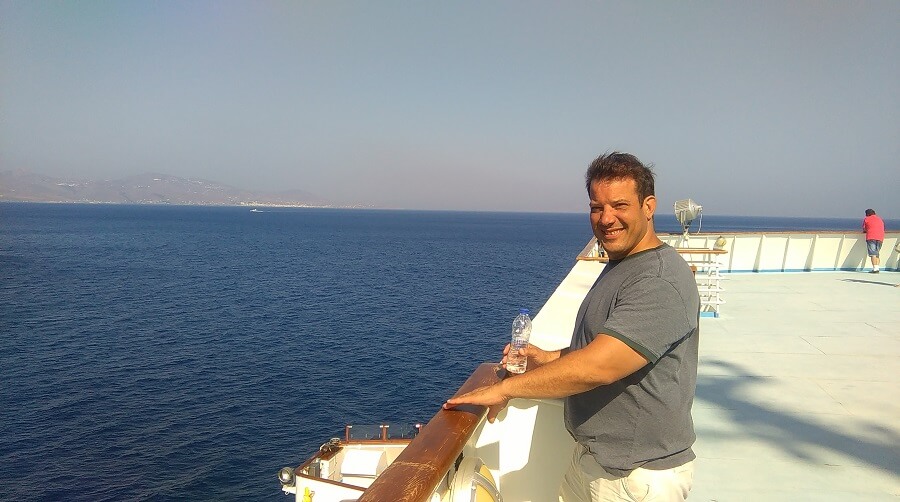
I came to visit my grandmother as a child in 84-86 and I spent entire summers here. I made friends that I still have today. I had unforgettable summers and always wanted to return. I’m originally form New Rochelle, NY. My father is Croatian and my mother American. After university I started working at a company trading equities in NY city. I’ve been self-employed since 1999 in equity trading. I invested in Croatia in real-estate in Dalmatia in 2001/2003 because I saw undervalued real-estate and great potential. I think this is also one of the best places in the world to vacation. I’ve been coming to Croatian every summer for the past 18 years. I spent years working in offices so I wanted a lifestyle change, less stress, more time on the beach, maybe go fishing and enjoy good food and wine. Croatia offers all of that. I met my lovely wife here and we decided to stay and start a family. My rental business is doing excellent and I do business development for the architecture company my wife founded - Axsis projects. Since most of our clients are foreign and investing in Croatia I can relate and understand specific problems they face since I went through it myself.
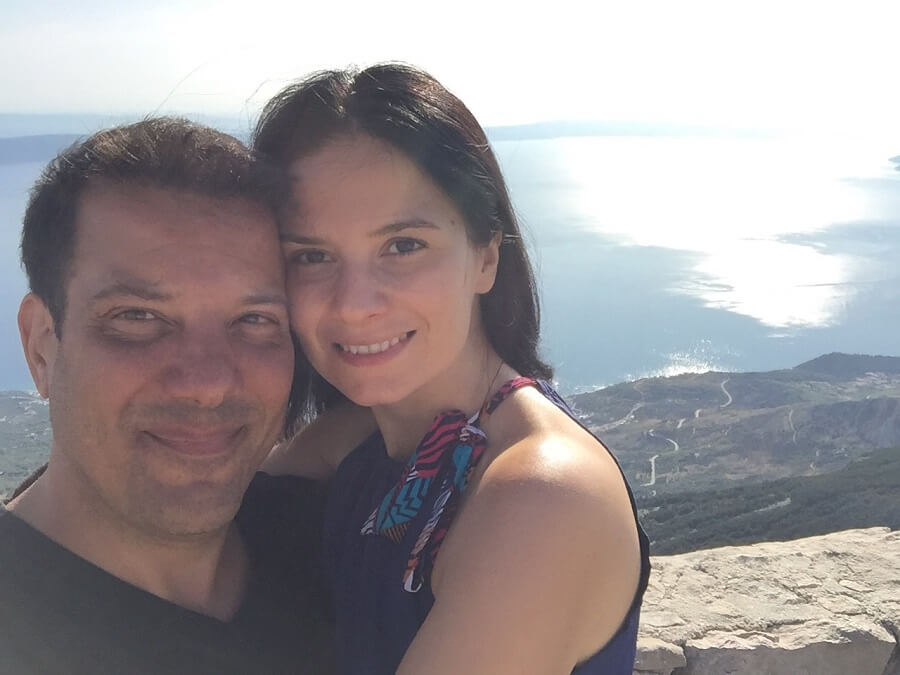
2. Looking back, what were your hopes, expectations and fears about moving to Croatia?
Biggest fears were not knowing the language and dealing with south Croatians about business. I had such bad experiences before. And being on my own, not having a network of friends and family to call out for help. Things have vastly improved over the past 10 years. I hoped doing business would be more transparent. But I’ve always been fiercely independent and a self-starter. I never really expected much but I knew to always count on myself to get things done. Dealing with the Balkan mindset was also one of my big worries.
3. How supportive was your Croatian community back home at the time?
My father and his friends did put me in contact with some local people in Croatia. The first Easter and Christmas would have been difficult if I was alone. I was invited to a wonderful family friends house for those holidays. My father was very happy and supportive. He is also very happy that his son married a Croatian girl and decided to live in Croatia.
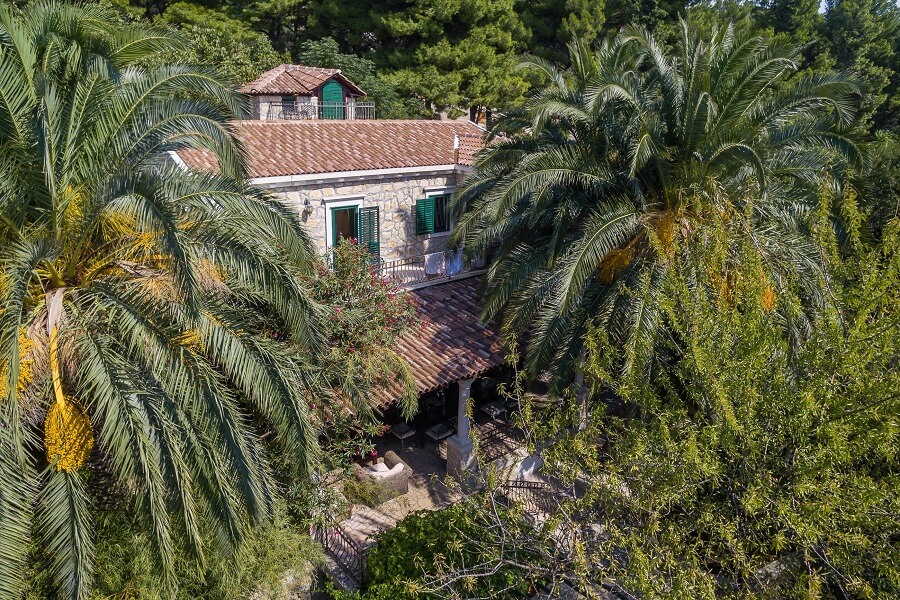
4. Many diaspora think of returning but few do. In truth, there is little information out there about real-life stories and help/info about the process. What advice do you have for those who are thinking about making the move?
I would say go for it. However, many of the things that we take for granted in the western world we can’t even expect here. You need to be proactive in achieving what you want, don’t look for handouts. It’s a good idea to have some financial security to support yourself for 6-12 months. Try to connect to the diaspora community here to assist you with your move. Be extraordinary careful about investing in real estate here and make sure you only deal with reputable people. What helped me is getting involved in expat community. For example, I’m a member of ACAP- American Croatian Professionals Association which gives me access to amazing people and a supportive community.
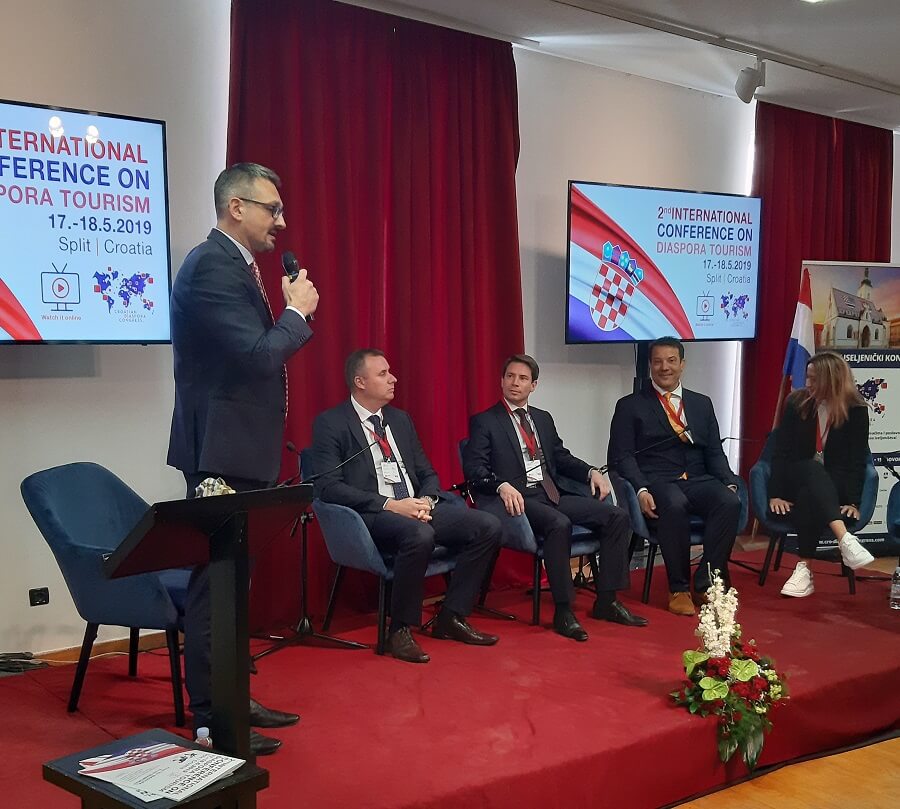
5. How were you perceived in Zagreb as diaspora moving back - was the welcome warm?
A lot of people were very shocked that an American would pick up and move to Zagreb. Why would you want to move in while everyone else is moving out? For the most part the welcome vas very warm. I managed to meet some wonderful people. A small minority were hostile towards my move. Old divisions and traumas still influence the way people treat foreigners. Younger generations are very open-minded and western orientated.
6. Through a lot of hard work, you have been very successful, while many foreigners have given up and left Croatia. What are the keys to success in doing business in Croatia in your opinion?
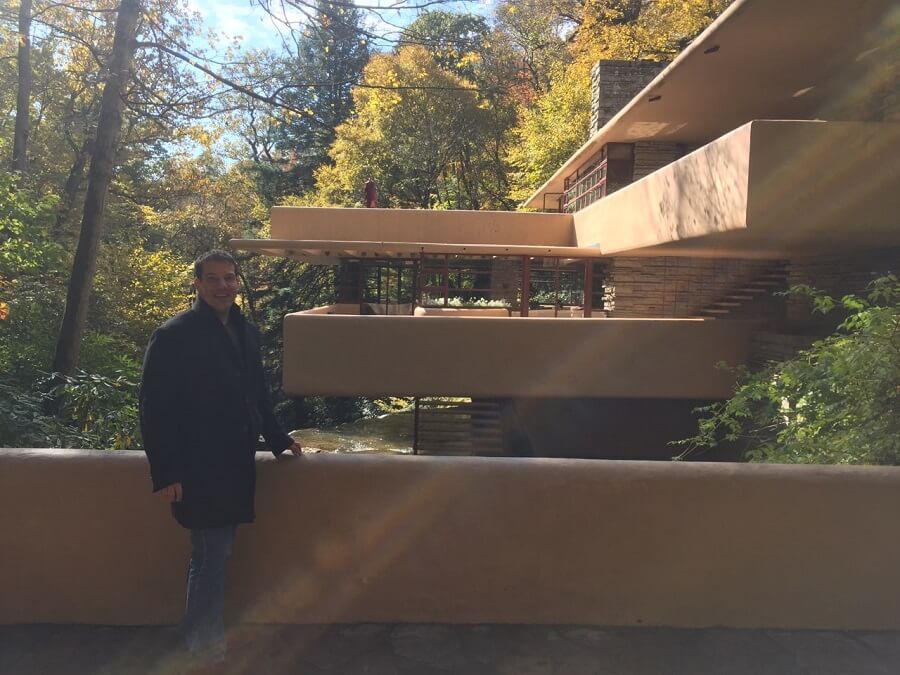
Persistence, hard work and initiative. Everything in Croatia is more difficult to accomplish than in the US, but through hard work and finding the right people, everything Is achievable. For example, I had tremendous difficulties finding contractors to do small jobs around my house. I stopped relying on outside help and started doing many things myself - plumbing, masonry, electric, roofing and similar... I could not find a welder so I bought my own welding machine and started watching – how not to kill yourself while arc welding 101 . In America they say if you want something done right you have to do it yourself. In many cases that is true. It is very important to surround yourself with honest hard working people who share your values. Avoid the smooth-talking con artists at all costs.
7. What is the diaspora community like in Zagreb and how integrated is it with locals?
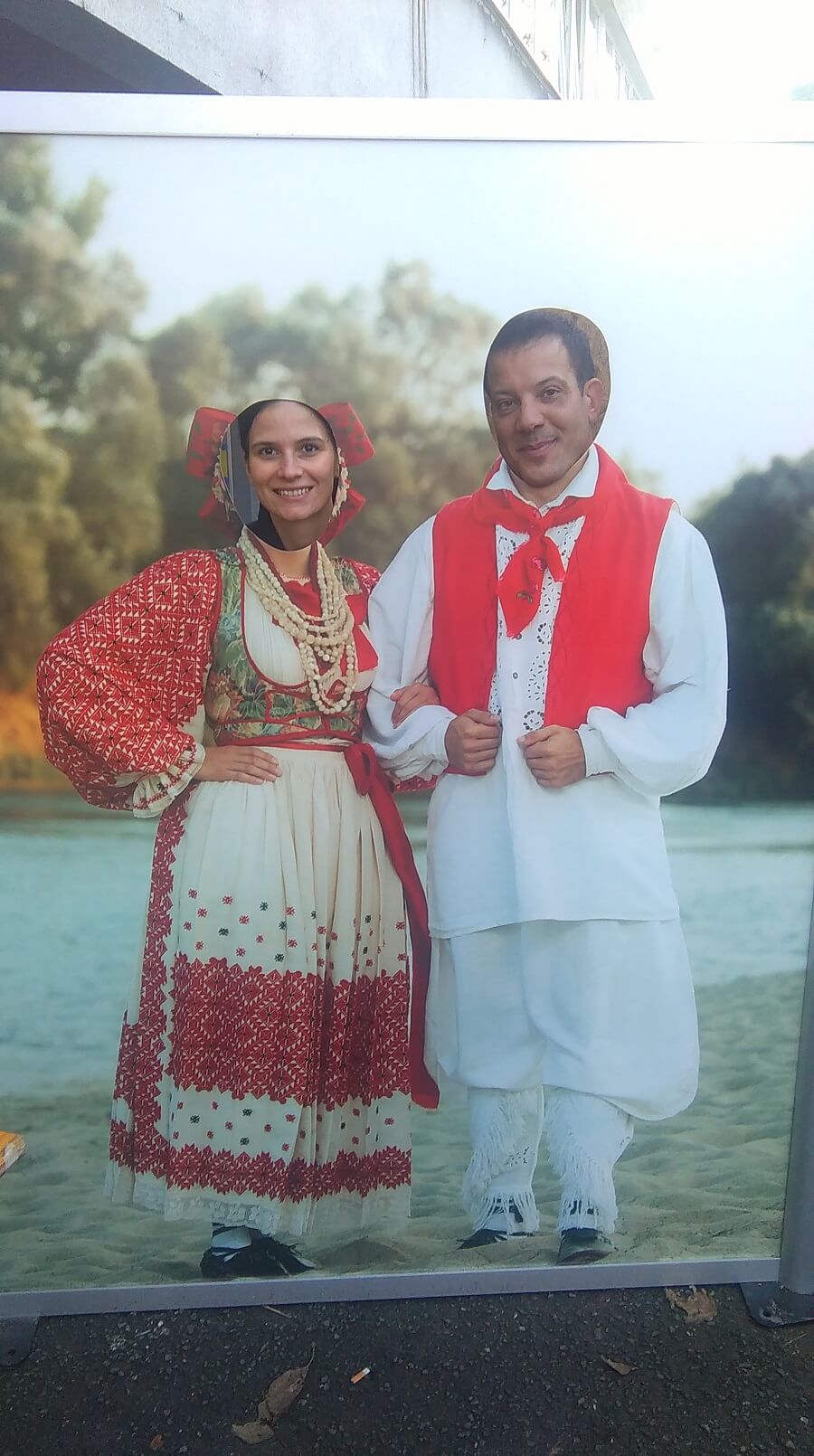
It is quite segmented but through FB meetups I managed to meet some great people. I think connectivity is improving with quality gatherings. Social networks are a crucial tool or personal networking. Diaspora and expats groups are excellent to help each other integrate and thrive.
8. And finally, a word on this conference. How was it for you, and what were the main take-home points?
I thoroughly enjoyed the conference. I felt that there was an inspirational and positive energy in the room. All of the speakers brought renewed optimism not only to the conference but to the country. Besides ‘don’t trust your cousin’ make sure that you are dealing with qualified honest people to further your business investment in Croatia.
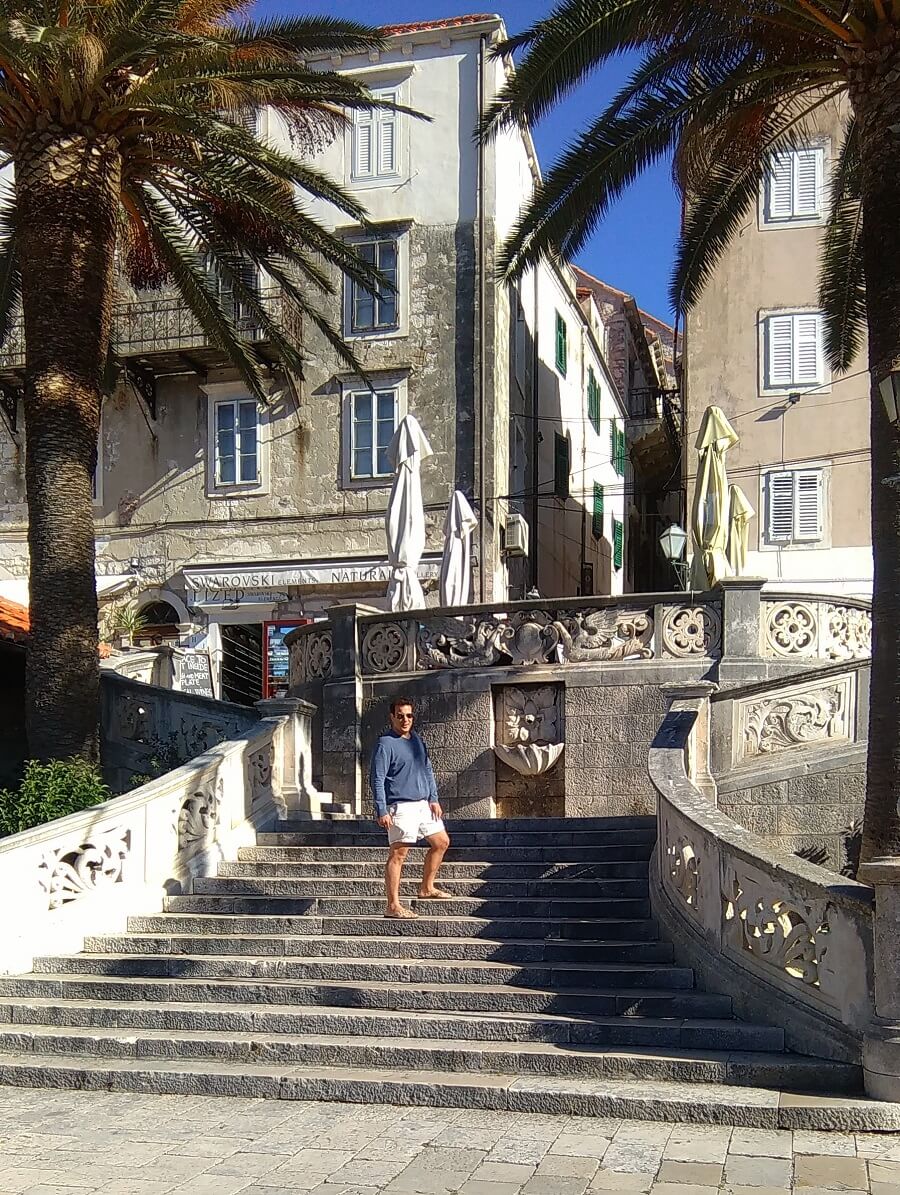
You can connect with Joe via Axsis Projects.
For more on the Croatian diaspora, check out the TCN dedicated section.
Zagreb Student Creates Car Powered by Pneumatic ''Muscles''
FSB's Zagreb student, Šime Grbić, has created an autonomous robotic car that uses compressed air and pneumatic ''muscles'' to drive, thrilling international innovators.
As Lucija Spiljak/Poslovni Dnevnik writes on the 26th of May, 2019, among the more than 600 innovations from 35 countries around the world at the tenth anniversary of EuroInvent, the largest European innovation exhibition recently held in Romania, excellent success has been achieved by Zagreb student Šime Grbić, a young innovator and student FSB Zagreb, otherwise from the Dalmatian city of Zadar, who won six medals for his project of a vehicle powered by pneumatic ''muscles''.
This year he enrolled at Zagreb's FSB to head in the direction of Mechatronic Engineering and Robotics, and the backbone of his final work on his undergraduate studies was the subject of the designing and driving of pressurised vehicles. His mentor prof.dr. Željko Šitum recognised the potential of the project and encouraged Šime to partake in EuroInvent, which turned out to be a significant and unprecedented success. In this paper, the innovator points out, the knowledge gained during his studies was well applied, and Grbić was particularly interested in the development of robotics and autonomous vehicles.
''Given the fact that I come from a working family, I'd always helped my dad out in the garage by repairing various machines, so I came into contact with practical design and learned a lot because there was no opportunity for practical work in school," this successful Zagreb student stated. This was his first appearance at an international show and as such, his first prize. "I was helped out by my mentor, the company Festo, which donated components for making it, FSB Zagreb's Mechatronic Association, and my parents and my girlfriend who boosted my morale and sometimes financial support," Šime said.
This innovative Zagreb student returned from EuroInvent with many medals, and the top of the top is the gold medal of EuroInvent. His vehicle powered by pneumatic muscles is the model of an autonomous vehicle or a mobile robot that uses compressed air for its start up and running. The air is controlled by its valves in its pneumatic muscles, which, by their contraction, rotate the crankshaft of the vehicle and thus drive the vehicle.
"The rotation is solved by the help of a linear pneumatic stepper motor, which is a new type of pneumatic actuator proposed by a professor from the University of Twente in the Netherlands, which has enabled us to have a proper geometry of turning and rotating the vehicle's interior and exterior wheels,'' Šime states. As compressed pressure is used for the drive, the vehicle is also more environmentally friendly because it has no harmful emissions.
"The application can be part of a hybrid vehicle or as a mobile robot for inspection in explosive atmospheres where sparking can lead to ignition or explosion," says Grbić. Mobile pneumatic robots are relatively new in the world of robotics, but he believes that there is plenty of room for further development and progress.
"For the time being, these vehicles are mostly found as experimental setups and as a visualisation of engineering know-how and skills, just as there is in the field of mobile robotics and pneumatic robots as a whole, there is still room for improvement, but also for further application and for use,'' the talented Zagreb student states.
His car is now nearing completion, and further upgrade is said to be expected in the software industry where he would like to add some functions like a remote control, so it isn't only autonomous.
Make sure to follow our dedicated Made in Croatia page for much more. If it's just Zagreb you're interested in, give Total Zagreb a follow or check out Zagreb in a Page.
Click here for the original article by Lucija Spiljak for Poslovni Dnevnik
Zagreb City Libraries Introduce E-Book Borrowing Service
On May 31, the Zagreb City Libraries will introduce the new e-book borrowing service to all members over the age of 15. This will be the first such pilot project in Croatia, it was announced at a press conference by Zagreb City Libraries director Višnja Cej, reports Večernji List on May 26, 2019.
She pointed out that the Zaki e-book borrowing app is straightforward to use, and can be installed on mobile phones, laptops, tablets or computers with the membership card number and a PIN available in all city libraries.
She said that the service would initially include 400 titles selected in collaboration with publishers, but would soon expand and be made available to children as well. The e-books are borrowed for a period of three weeks, and for now, it is not possible to extend the deadline.
Cej said that there will always be people who will want to borrow actual physical books with covers and pages, but there are also those who will want to use their new e-book service in trams, on beaches, anywhere, 24 hours a day. She added that the app was very accessible. Citizens need to be members of the Zagreb City Libraries, have their membership number and a PIN and, “enjoy the new service.”
The e-book project will be launched on May 31 because the libraries wanted to give citizens the new service as a gift for the Day of the City of Zagreb. She believes the platform will contribute to the popularization of book reading in the virtual environment. The program is co-financed by the City of Zagreb.
The press conference also presented the initial proposal for the new building of the central city library branch at the Paromlin site. Ismena Meić, head of the branch, said that by launching a tender for the design at the end of last year, the City of Zagreb had made a significant step towards solving two problems – reviving the Paromlin industrial heritage complex and finding the adequate accommodation for the main branch, which has changed several locations since its establishment in 1907 and is currently housed at the so-called Starčević building.
“By implementing the new building project, the city library would accomplish its centennial dream which would allow the valuable fund with almost 500,000 units to be gathered at one location. The new building will become a living room for citizens, the centre of the city and the public space that will provide citizens with access to information, programmes and services. It will become a new symbol of Zagreb, a city oriented towards knowledge, learning and culture,” she said.
Mayor Milan Bandić said that he was proud that Zagreb allocates seven per cent of its budget for culture, while the share on the national level is just 0.8 per cent. “In order to promote reading, we have enabled children to become members of all city library branches free of charge. We are the second worst country in Europe by reading, so we have to do something about that,” said Bandić.
Translated from Večernji List.
More news about books in Croatia can be found in the Lifestyle section.
Croatian Restaurants Receive Michelin Awards in Zagreb
METRO Cash & Carry and the Croatian National Tourist Board, partners of Michelin Croatia, awarded Michelin awards to Croatian restaurants within the R'n'B Weekend festival in Zagreb. This was the first time Zagreb hosted this festival, reports Novi List on May 25, 2019.
Croatia’s Michelin-starred restaurants this year include Monte from Rovinj, Pelegrini from Šibenik, 360º from Dubrovnik, and Draga di Lovrana from Lovran and Noel from Zagreb, who for the first time was awarded this prestigious recognition.
The Michelin Guide for 2019 includes 63 restaurants from all over Croatia, and the award ceremony brought together the best Croatian restaurants and their chefs who celebrated their success with METRO.
"We are delighted that Zagreb is the host of the Michelin awards for the first time, one of the most prestigious culinary awards in the world. METRO is a long-time global partner of the Michelin Guide and a partner of Michelin Croatia since 2017. With more than 100 years of experience selecting restaurants, the Michelin Guide today is an international reference for fine dining. This partnership confirms our desire to be the preferred partner of the HoReCa sector through the professional support it deserves. We will continue to work with our HoReCa partners to develop together and further enhance the quality of Croatian gastronomy through the offer of international and local foods. As restaurants want to create their menus using locally produced ingredients, we focus on developing our offer in cooperation with Croatian producers,” said Thierry Guillon-Verne, Chairman of the Board of METRO Cash & Carry in Croatia.
Through continuous development of innovative product assortment and services, METRO wants to support the hospitality sector so that restaurants can offer their guests high-quality products, strengthen their competitiveness, and develop a top gastronomic offer in Croatia.
The list of all Croatian restaurants listed in the Michelin Guide for 2019 can be found here.
To read more about lifestyle in Croatia, follow TCN’s dedicated page.
Successful Diaspora Returnee Stories: John Gasparac, PWC, Zagreb
The 2nd International Conference on Diaspora Tourism took place in Split on May 17, 2019. TCN meets some of the returning diaspora who have made a success of life in Croatia. Next up, John Gasparac, Country Managing Partner of PWC.
1. You are from Canada, returned to Croatia, something that many diaspora dream of doing. Tell us briefly about your journey.
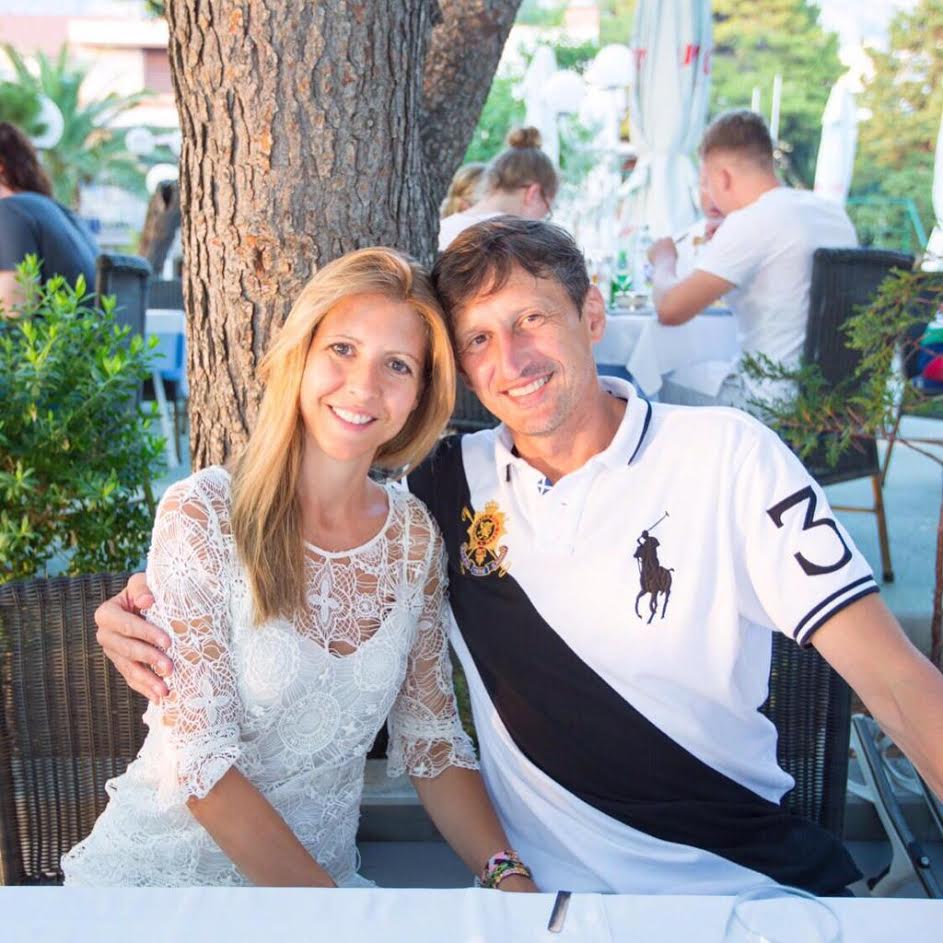
Initially, my decision to move to Croatia was not to become a returnee. I accepted a 2-year secondment to open the Price Waterhouse office in early 1997. I did not feel comfortable committing for more than two years. I came to Zagreb in January 1997, recently engaged (to my wife Maca, we were married later in 1997) - we both looked at the move as more of an adventure or life experience at the time.
However, as time went by, and the country developed, my career opportunity at PwC also blossomed. PwC is now 250 people strong and Maca and I have 3 children (Ivana 19, Marko 18 and Ivan 11), all of whom have grown up in Zagreb. My journey, like many others, illustrates anything is possible and diversity makes you stronger - I am Canadian, Maca is Australian born, Ivana and Marko were born in Canada, and Ivan was born in Zagreb. You can't plan this!
2. Looking back, what were your hopes, expectations and fears about moving to Croatia?
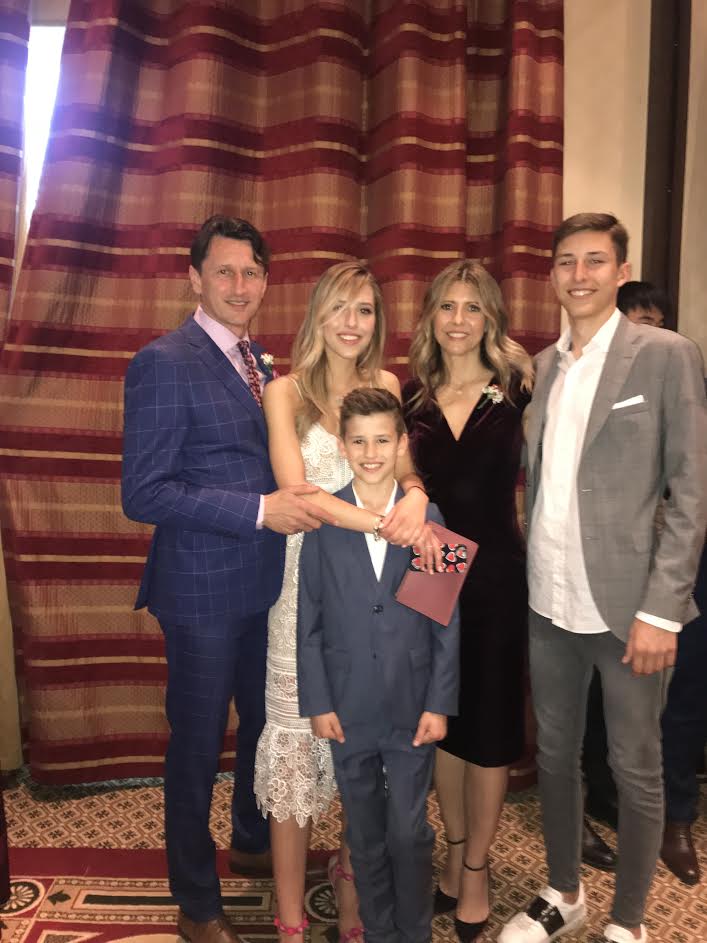
I would say that my hopes were to have an unforgettable experience, career-wise but also from a general life perspective. In particular, improving my Croatian, travelling through Croatia and the rest of Europe, and of course, meeting new people as well as being closer to family I had never really spent much time with. I expected there to be challenges from a cultural perspective, especially in the office and with clients, but generally I looked forward to finding my place both in the office and socially. I think the only real fear, if I could call it that, was to not perform well at work.
Having said that, we came into the move believing it was temporary, and as time passed, those fears disappeared pretty quickly. In the end, reality has far exceeded any expectations I had ever had. I have met so many incredible people, travelled to many wonderful places and had more amazing experiences than I had bargained for, especially watching our Croatian National football team succeed on more than one occasion.
3. How supportive was your Croatian community back home at the time?

In Canada, the reaction was mixed. Many people were supportive and perhaps wish they had an opportunity to do the same, but I would say there were just as many saying it was crazy - what kind of life could I have there, especially since the war had ended only recently. My parents were even split on it - my father was thrilled, proud, encouraging me to make a life there. My mother, on the other hand, although not unsupportive, had many doubts and worries.
4. Many diaspora think of returning but few do. In truth, there is little information out there about real-life stories and help/info about the process. What advice do you have for those who are thinking about making the move?
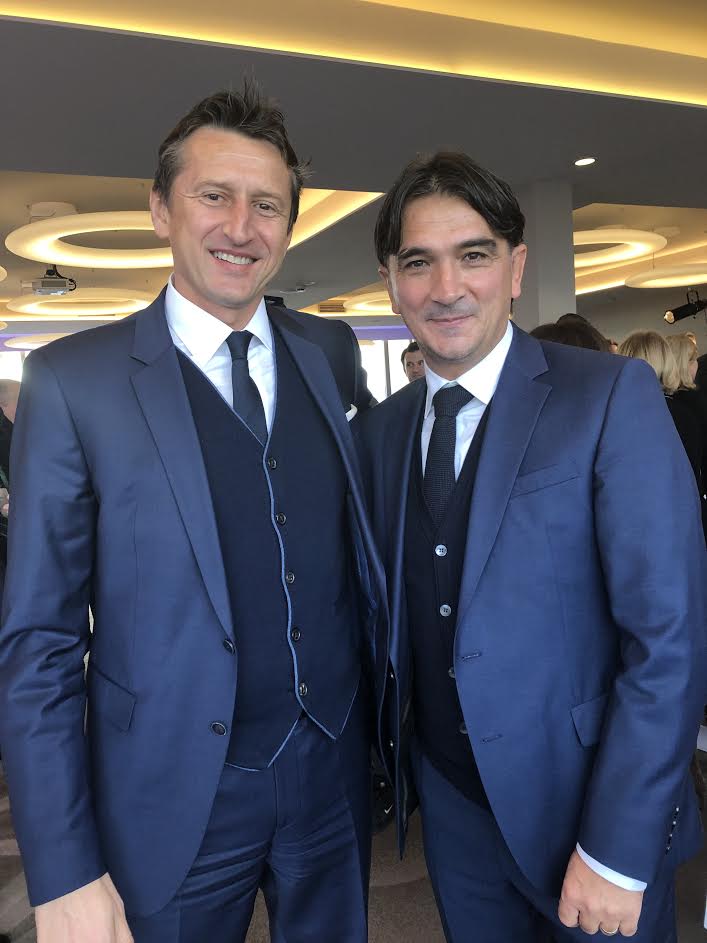
I think the best piece of advice I received at the time still holds true today. When you do move, the first 6 months, no matter what, will be the most difficult and unlike anything you have ever experienced before. In this time, you realise that you have left your entire life history behind you - friends, family, social activities - all the comforts you have in your home town - disappear, at least temporarily, when you first land.
So it is important to manage your own expectations - do some research (due diligence) to understand what processes are in place for newcomers - talk to people, even come visit, preferably not during the summer months, to get a feel for what everyday life is like. Even try to get a job, if only for a few months, to get a feel for the people, culture, possibilities. Consider what you would do back home - if you have children, consider which activities, sports, schools you would include them into. For me, simply the children growing up here provided plenty of opportunity to engage, and integrate with locals and the local opportunity. Generally, I have to say that today, it is much different than when I first came - from digitisation and connectivity, to improved and more efficient processes.
5. How were you perceived in Zagreb as diaspora moving back - was the welcome warm?
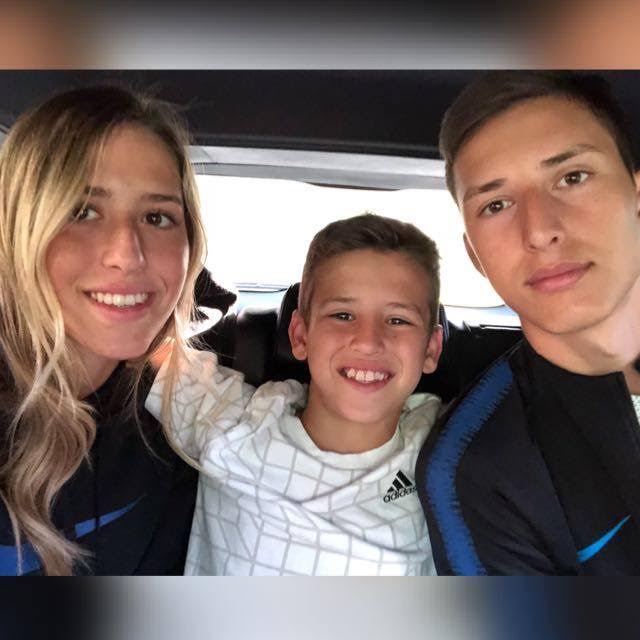
It was a mix. You have to take into account that when I arrived, the war was very fresh in people's minds, and many of the people I was working with grew up in the previous regime. I was perceived by some as a threat, taking someone's job. Some thought I was also crazy to come live there - all they wanted was to get out. There was even one person who was certain I was a spy!
It took over a year for all the theories to be dispelled and for most people to realise I was there to do a job and it was actually even good for them that I was there- it added credibility to the workforce. Mindset was also a point to note - I have been told several times that the thing people like about me (and my Canadian friends) is that we do the right thing because its the right thing to do, not because we have a specific ulterior motive.
6. Through a lot of hard work, you have been very successful, while many foreigners have given up and left Croatia. What are the keys to success in doing business in Croatia in your opinion?
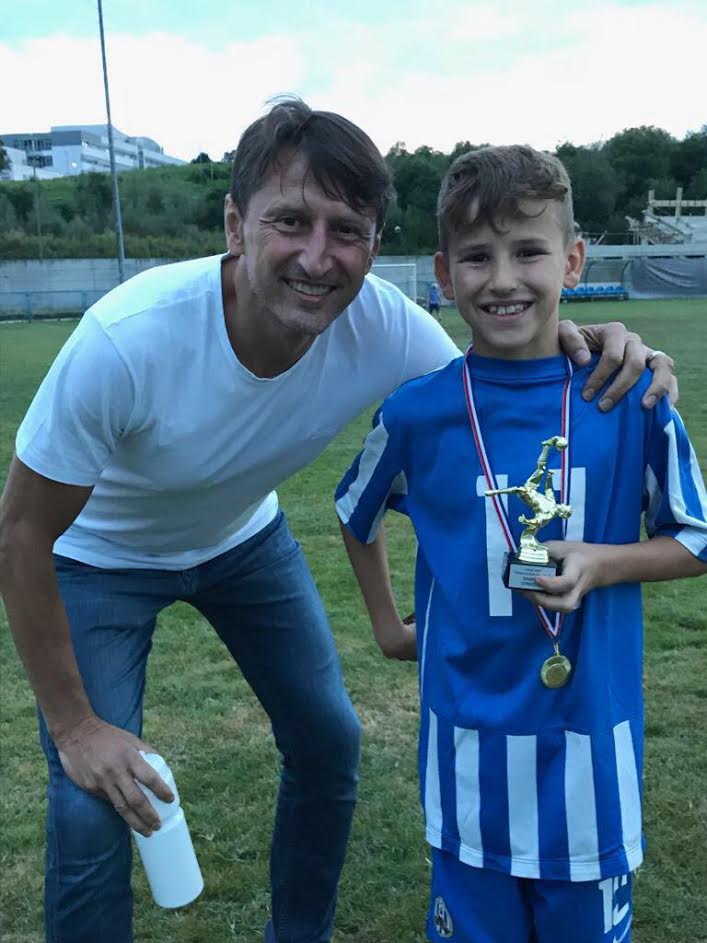
There are many important keys to success, and I would say they are not too different to the rest of the world, when put in context. An open mind to new experiences/ideas, persistence, setting proper/realistic expectations, learning from failures, hiring quality people to name a few. In my experience, building strong personable relationships based on quality and trust, is perhaps the most important element. This takes time, it does not happen overnight. And all of the other factors impact or interact with this. However, these relationships (with clients, employees and the business community) over time also provide the basis for people to believe you aren't going anywhere either - the continuity of staying in Croatia for several years and clearly demonstrating good intentions, for me, has above everything else, been the biggest key to success.
Further, I want to emphasise that my trust in good people has also paid dividends - and there are plenty of very good people in Croatia, who are interested in working in a market economy and using their skills and competencies to succeed. There is also the intangible element of taking clients to Croatian National Team football matches (such as last summer in Russia). This has proven to be the ultimate bonding experience and takes relationships to the next level.
7. What is the diaspora community like in Zagreb and how integrated is it with locals?
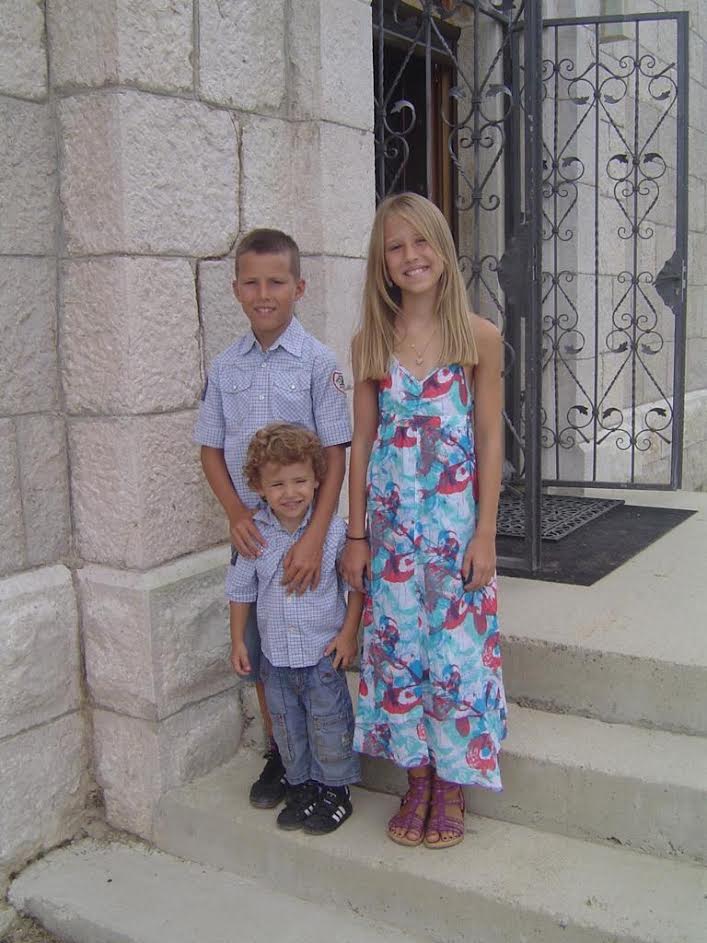
It is a diverse, somewhat fragmented community. It is not surprisingly primarily made up of Canadians, Australians and Americans although I do know some South Americans as well. Its a very nice blend of countries. There are some annual socials and events (such as independence days) and this gives us all opportunities to broaden our networks, share experiences, provide support to each other, as we do have very similar mindsets. I would say the diaspora is very integrated with locals - some through marriage but many through business, school, sports and general socialisation. It is imperative as there isn't that many of us that we can simply function without integrating with locals.
8. And finally, a word on this conference. How was it for you, and what were the main take-home points?
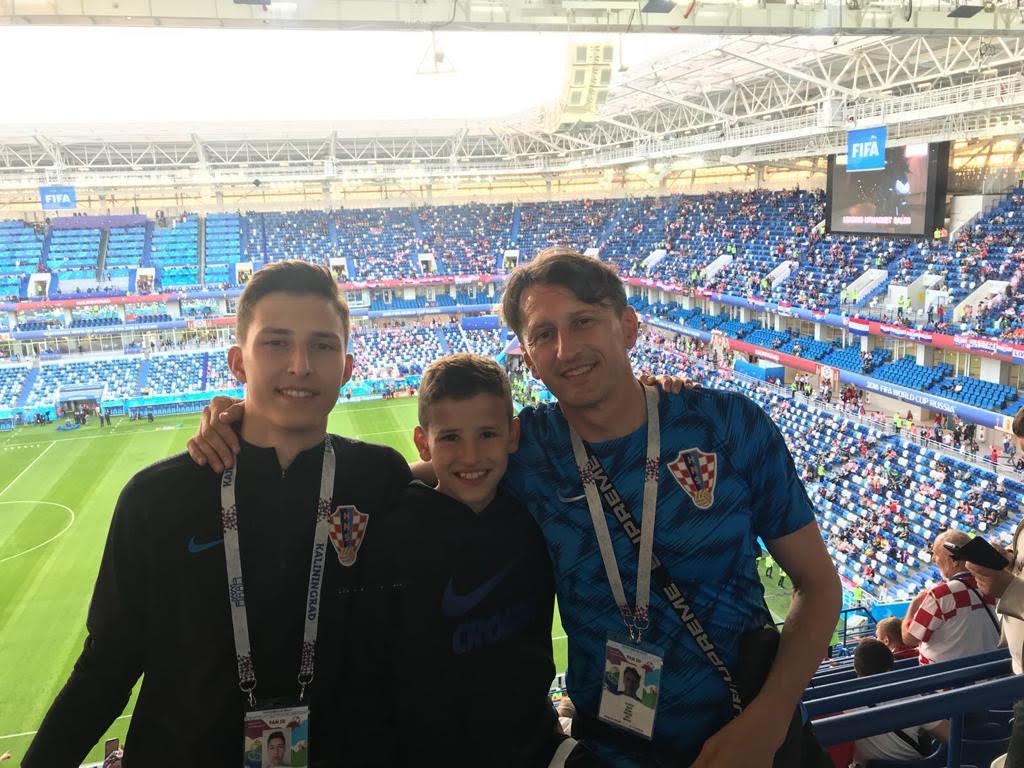
This was an excellent conference - both for its content but also for its timing. The themes were spot on and it drew on the experience of many successful returnees painting what I believe is a very realistic picture of the opportunities but also the challenges of living and doing business in Croatia. The timing was brilliant as Croatia is abundant with opportunities and a new wave of emigration could be the tipping point to bring them to fruition sooner rather than later.
What is important for me is that the conference provided a platform for returnees, who grew up in the diaspora - in very developed countries, to share their stories, their knowledge and experience with those who are thinking about moving and also for these same successful people to meet and start to create ideas, visions for the future, to lead and make Croatia a better place for generations to come.
For more on the Croatian diaspora, check out the TCN dedicated section.
A Return to Old Glory for the Port of Rijeka? Potentially...
As Suzana Varosanec/Poslovni Dnevnik writes on the 23rd of May, 2019, investors have recognised the potential, which for the Port of Rijeka, means a step forward to the leading container-logistics centre in the Northern Adriatic.
With new investments, Rijeka is being returned to the former position that it once enjoyed at the tail end of the 1970's, when it was a large and significant port centre. Those have been the type of messages sent to the director of the Rijeka Port Authority, Denis Vukorepa, on the occasion of the completion of the Zagreb Deep Sea Container Terminal (Zagreb DSCT) project in the Port of Rijeka.
There has been a great level of interest from potential concessionaires, including as many as seven of the world's largest operators from Europe, the Middle East and the Far East. Officially, the Chinese, and also the CRBC which is currently building Pelješac Bridge, have made themselves known.
The Minister of Maritime Affairs, Transport and Infrastructure, Oleg Butković, will also visit the terminal at which the works are taking place today. To briefly recall, the most important capital project in the Rijeka Gateway Project II, worth 112.5 million euros, of which 84 million euro is from a World Bank loan, while 28.5 million euros is financed by the state. However, in addition to those amounts, the Rijeka Port Administration has continued to invest 40-50 million euros in its own investments.
When this part is completed, individual talks are expected in June and July when potential concessionaires will present their respective terminal management concepts.
It's certainly not excluded that the interest for the second phase of the construction of the terminal will gain traction, and for which permits have been prepared. The expected term for the signing of a contract currently stands at the end of September.
Traffic in the Rijeka basin in the container area has increased by about ten percent over more recent years, but a more dynamic growth in freight volumes and cargo flow is expected, which is the subject of interest for rail freight operators, and is expected to attract a larger volume of truck traffic.
Make sure to follow our dedicated business page for much more.
Click here for the original article by Suzana Varosanec for Poslovni Dnevnik
HNL Round 35 Recap: Gorica Tops Osijek, Hajduk Moves into 3rd
May 21, 2019 - The 35th round of the Croatian First League was held from May 18 to 20, 2019. The second to last round of the season saw Hajduk move into third place and Osijek fall to fourth after a loss to Gorica.
Inter Zaprešić v. Dinamo (2:3)
Inter and Dinamo met in Zaprešić in front of 1,688 spectators to open the 35th round on Saturday, May 18, 2019.
While it was Kadzior to score the first two goals for Dinamo (5’, 17’), Inter’s Ajayi came back with a goal in the 32nd, and Tsonev with another in the 35th to equalize. Dinamo was awarded a penalty in the 61st minute which Andrić scored for 2:3.
Inter is currently in 8th place with 31 points, while Dinamo has already claimed the Croatian championship and sits in first with 89 points.
Rijeka v. Lokomotiva (1:0)
Rijeka and Lokomotiva met on Saturday, May 18, 2019, at Rujevica stadium in front of 3,068 fans.
Murić scored the only goal of the game in the 36th minute, which ultimately gave Rijeka the home win.
Rijeka is currently in second place with 66 points, while Lokomotiva is in 6th with 49.
Hajduk v. Istra 1961 (4:1)
Hajduk and Istra met at Poljud in front of no fans on Sunday, May 19, 2019.
While Istra was the first to score thanks to Ivančić in the 6th minute, Hajduk picked it up in the second half and managed four goals. Caktaš scored first in the 48th minute, followed by Gyurcso in the 56th for 2:1. Jairo scored in the 77th minute for 3:1, and Nejašmić in the 93rd for 4:1.
Hajduk is currently in third place with 62 points, while Istra is in 9th with 22.
Gorica v. Osijek (1:0)
Gorica and Osijek met on Sunday, May 19, 2019, in Velika Gorica in front of 1,693 fans.
While the first half went without goals, it was Gorica’s Suk to score in the 57th minute for 1:0, which was the final score of the game.
Gorica is currently in 5th place with 56 points, while Osijek is in 4th with 59.
Rudeš v. Slaven Belupo (0:1)
Rudeš and Belupo closed out the 35th round on Monday, May 21, 2019, at Kranjčevićeva street stadium in front of 83 fans.
The first half went without goals and it wasn't until a penalty for Belupo in the 78th minute that Delić scored for 0:1.
Rudeš remains in the last place with 14 points, while Belupo is in 7th with 36.
You can see the full HNL table here.
To read more about sport in Croatia, follow TCN’s dedicated page.

